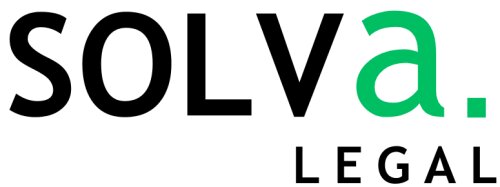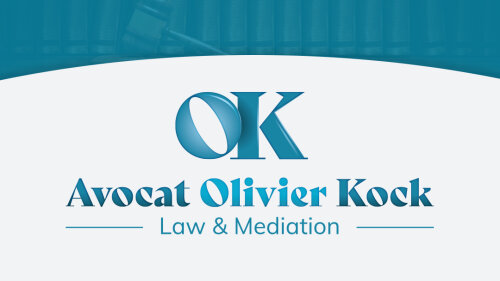Best Corporate Governance Lawyers in Belgium
Share your needs with us, get contacted by law firms.
Free. Takes 2 min.
Or refine your search by selecting a city:
List of the best lawyers in Belgium
About Corporate Governance Law in Belgium
Corporate governance in Belgium refers to the legal and regulatory framework that governs how companies are directed and controlled. This framework sets out the roles, rights, and responsibilities of different stakeholders within a company such as shareholders, the board of directors, management, and other key parties. The objective of corporate governance is to ensure that companies operate transparently, maintain accountability, and safeguard the interests of all stakeholders. Belgium follows both European Union directives and its own national legislation, resulting in a robust corporate governance environment that aims to foster responsible business conduct and economic stability.
Why You May Need a Lawyer
Navigating corporate governance requirements in Belgium can be complex due to the intricate interplay between Belgian law, European regulations, and internal company rules. Here are some common situations where seeking legal assistance may be necessary:
- Setting up a new company and defining its governance structure
- Ensuring compliance with regulations and industry codes
- Addressing disputes between shareholders, board members, or executives
- Managing conflicts of interest and ethical dilemmas within the board
- Conducting mergers, acquisitions, or restructuring exercises
- Overseeing disclosure obligations and transparency requirements
- Modifying a company’s articles of association or bylaws
- Handling investigations into fraud, insider trading, or corporate wrongdoing
An experienced corporate governance lawyer can help you make informed decisions, prevent legal issues, and ensure your company adheres to all legal requirements.
Local Laws Overview
The core of corporate governance law in Belgium is found in the Belgian Code of Companies and Associations (BCCA), which took effect in 2019. The BCCA modernized the legal framework to enhance flexibility, corporate efficiency, and legal certainty. Here are some key aspects of local laws relevant to corporate governance in Belgium:
- Company Structure: The BCCA recognizes several company forms, including the public limited company (NV/SA), private limited company (BV/SRL), and cooperative company (CV/SC). Each has its own governance requirements.
- Board of Directors: Rules govern the composition, appointment, powers, and liability of boards. Both one-tier and two-tier board systems are allowed.
- Shareholders’ Rights: The law sets out the rights and duties of shareholders, including voting rights, information rights, and rights to dividends.
- Transparency: Companies must follow strict disclosure and transparency obligations, especially listed companies, as mandated by Belgian law and EU directives.
- Corporate Social Responsibility: Belgian companies are encouraged to consider environmental, social, and governance (ESG) factors in their strategies.
- Market Abuse and Insider Trading: There are stringent laws on market integrity, preventing misuse of inside information and market manipulation.
- Corporate Governance Codes: The Belgian Corporate Governance Code provides non-binding best practice principles for listed companies, focusing on leadership, effectiveness, accountability, and transparency.
Frequently Asked Questions
What is the Belgian Corporate Governance Code?
The Belgian Corporate Governance Code sets out best practices for listed companies in Belgium. It provides recommendations on board composition, risk management, transparency, and stakeholder relations. While not legally binding, companies must explain any deviations from the code in their annual report.
Which companies must follow corporate governance laws in Belgium?
All companies established in Belgium are subject to the Belgian Code of Companies and Associations. Listed companies and financial institutions may have additional governance obligations.
What are the key responsibilities of a board of directors in Belgium?
The board is responsible for the overall management, strategic direction, and supervision of the company’s activities. Board members must act in the best interests of the company, and failure to do so can result in personal liability.
How are shareholders’ rights protected in Belgium?
Shareholders have rights to attend and vote at general meetings, receive company information, propose agenda items, and take legal action against abusive conduct or decisions that violate their rights.
Are there mandatory board structures for Belgian companies?
The law allows flexibility with one-tier or two-tier board systems. The specific requirements may depend on the company’s legal form and whether it is listed or not.
How should conflicts of interest be managed within the board?
Directors must declare any conflicts of interest, abstain from voting on relevant matters, and follow specific disclosure and documentation procedures outlined in the BCCA.
Is it mandatory to have independent directors on the board?
For listed companies, there is a requirement for a certain proportion of independent directors to ensure objective decisionmaking and governance integrity.
What are the disclosure obligations for Belgian companies?
Companies must disclose financial statements, major shareholdings, and important management decisions. Listed companies have stricter reporting and publication requirements.
What are the penalties for breaching corporate governance rules?
Penalties may include fines, civil liability, annulment of decisions, or criminal sanctions in cases of fraud or serious misconduct.
How often do Belgian companies need to hold general meetings?
At least one annual general meeting is required to approve the financial statements and discuss other key matters. Additional meetings can be convened as necessary.
Additional Resources
If you require more information, several Belgian organizations and authorities provide helpful guidance on corporate governance:
- Belgian Financial Services and Markets Authority (FSMA): Oversight of financial markets and listed companies
- Ministry of Economy and Employment: Provides guidance on company law and governance
- Belgian Corporate Governance Committee: Develops and updates the Belgian Corporate Governance Code
- Federation of Enterprises in Belgium (FEB): Offers resources and updates on corporate legislation
- Banks and professional associations: Many offer updates, newsletters, and publications on corporate governance topics
Next Steps
If you need legal assistance with corporate governance in Belgium, start by gathering all relevant documentation concerning your company’s structure, board composition, and shareholder agreements. Consider arranging a consultation with a specialized corporate governance lawyer who understands Belgian law and your specific situation. Prepare any questions or concerns you have regarding compliance, governance structure, or potential disputes. Taking proactive legal advice will help ensure your company operates within the regulatory framework and is prepared for future challenges.
You may also benefit from participating in seminars or workshops organized by Belgian legal or business associations, which can help you stay informed about changes in corporate governance practices and laws.
Lawzana helps you find the best lawyers and law firms in Belgium through a curated and pre-screened list of qualified legal professionals. Our platform offers rankings and detailed profiles of attorneys and law firms, allowing you to compare based on practice areas, including Corporate Governance, experience, and client feedback.
Each profile includes a description of the firm's areas of practice, client reviews, team members and partners, year of establishment, spoken languages, office locations, contact information, social media presence, and any published articles or resources. Most firms on our platform speak English and are experienced in both local and international legal matters.
Get a quote from top-rated law firms in Belgium — quickly, securely, and without unnecessary hassle.
Disclaimer:
The information provided on this page is for general informational purposes only and does not constitute legal advice. While we strive to ensure the accuracy and relevance of the content, legal information may change over time, and interpretations of the law can vary. You should always consult with a qualified legal professional for advice specific to your situation.
We disclaim all liability for actions taken or not taken based on the content of this page. If you believe any information is incorrect or outdated, please contact us, and we will review and update it where appropriate.
Browse corporate governance law firms by city in Belgium
Refine your search by selecting a city.















